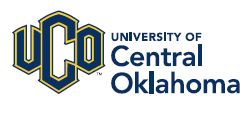Below is a summary of the abstract you submitted. Presenting author(s) is shown in bold.
If any changes need to be made, you can modify the abstract or change the authors.
You can also download a .docx version of this abstract.
If there are any problems, please email Dan at dar78@pitt.edu and he'll take care of them!
This abstract was last modified on March 15, 2022 at 11:42 a.m..

A bacteriophage is a virus that infects and kills bacteria. A phage can inhibit the bacterial hosts’ own replication mechanism and recruit the bacterial cell’s DNA translation molecular machinery to manufacture more phage particles. This results in the lysis of host bacteria cells and the release of more phage particles into the surrounding environment to repeat the cycle of bacterial infection and cell lysis. The lytic cycle of the phage and the subsequent cell lysis is of great interest to researchers investigating phage therapy. As part of the UCO SEA-PHAGES program in Fall 2021, we isolated and characterized an Arthrobacteriophage from Oklahoma soil. Arthrobacter sp. ATCC 20122 was used as the host bacteria. The phage, ScienceWizSam, was isolated from soil found in my garden with GPS coordinates Latitude 35.383 and Longitude -97.550. ScienceWizSam was isolated from a plaque using an enriched method and purified through three rounds of plaque purification to obtain a clonal phage population. I obtained a low and high titer-lysate using webbed plates. Subsequently, DNA extraction coupled with restriction enzyme digestion was performed. The phage genome was sequenced and is being annotated as part of the Bioinformatics course.
